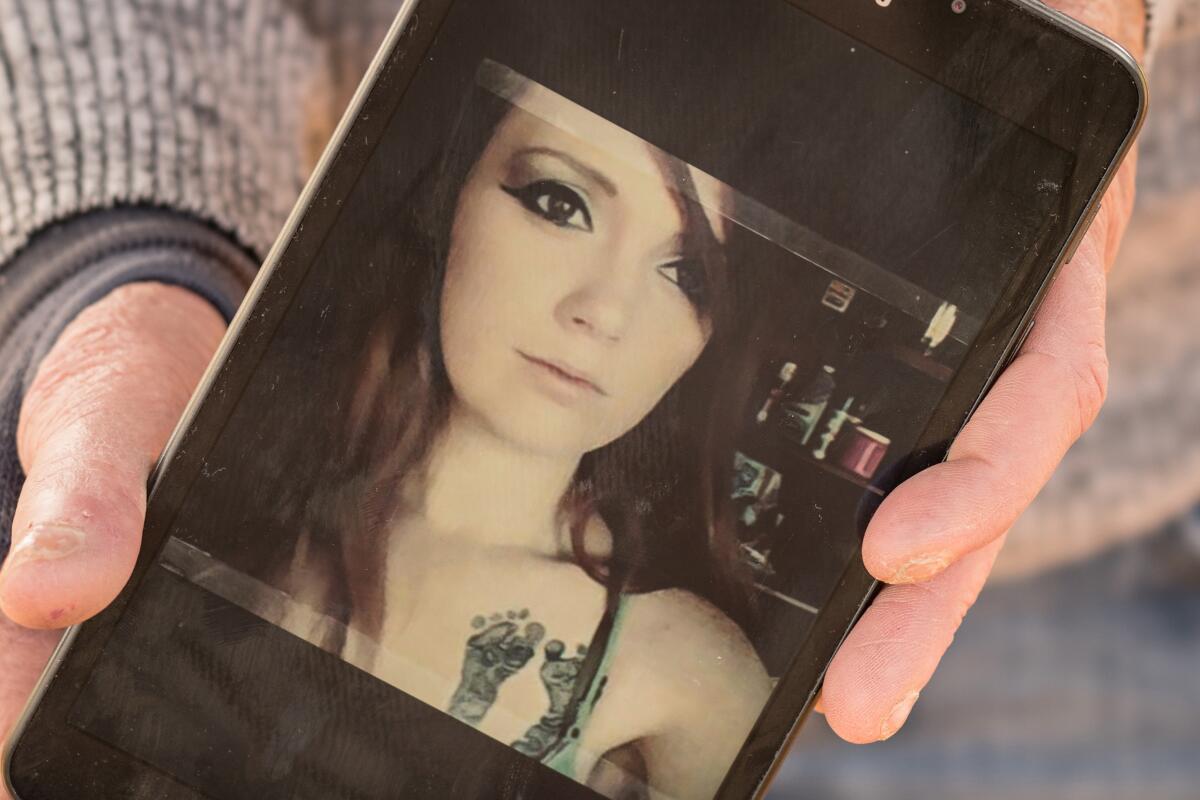Column: Pregnant drug addicts try our patience and empathy, but they don’t belong in prison

- Share via
I had conflicting reactions to the story of Chelsea Becker, the 25-year-old Hanford, Calif., meth addict who delivered a stillborn baby boy in September: revulsion, sadness, pity, sympathy.
An autopsy showed that the baby, Zachariah, had what prosecutors allege were “toxic levels” of methamphetamine in his system. Becker is now in jail on suspicion of murdering him.
My colleague Alexandra Wigglesworth, who reported the story, visited Becker in jail, where she’s being held in lieu of $5 million bail.
“I didn’t kill my baby,” Becker sobbed during their visit. “I wish it could have been me instead.”
This is how addicts think. They don’t believe they are responsible for the mayhem they create; it’s always someone else’s fault. Or no one’s fault.
Becker’s record as a mother has been dismal. She has given birth to three other children, two of whom were born with meth in their systems. The oldest has been adopted by a family friend. The two youngest are in the care of Becker’s aunt, Julie Lance, thank God. She is doing a wonderful and important thing.
Lance is angry, though, and who can blame her?
“If they drop these charges and let her out of jail, she’s just going to do this again,” Lance told Wigglesworth. “She needs mental healthcare, she needs drug rehabilitation — and she needs jail time.”
I understand where she’s coming from, though we disagree about jail. Nearly a year ago, I became the guardian of a relative who was removed from her troubled mother. I’m single. I travel constantly for work. I help my 90-year-old father. At a point when my family obligations should be winding down, they have cranked up to 11.
Through no choice of my own, I am back in a world of parent-teacher conferences, gymnastics lessons, babysitters and homework. The daily drudge of laundry, dishes and dinner can be overwhelming. The price that family members pay for someone else’s addiction is enormous.
Part of me would love to see Becker rot in jail. But putting a drug-addled mother in prison is not the answer. She needs counseling, rehabilitation services and support.
Addiction, after all, is not a crime. It is a disease.
No woman should be charged with murder if her fetus dies because of her disease.
Despite the Christian right’s unceasing attempts to confer personhood on the unborn, a fetus is not a separate person. Laws that Kings County prosecutors used to charge Becker with murder were never intended to be used against pregnant mothers; they were intended to be used against others — like abusive spouses — who kill a baby in utero.
::
In ways large and small, society polices women’s bodies in ways men would never tolerate.
Large: Across the country, conservative state legislatures are attempting to limit access to safe and legal abortion by passing irrelevant laws designed only to impede women from exercising their constitutional right to end an unwanted pregnancy.
Small: When I first became pregnant with my daughter, I took my then-editor to dinner at Valentino, the once-fabulous, now-shuttered Italian restaurant in Santa Monica. She was visibly pregnant; I wasn’t showing yet.
“Would you like a cocktail?” the waiter asked me. I ordered a glass of wine.
Then he turned to my editor, looked at her swollen belly and said, “You won’t be drinking tonight.”
Unamused, she ordered a glass of wine.
We both gave birth to wonderful, incredibly intelligent daughters.
And now, nearly 30 years later, we still shake our heads at that waiter’s presumptuousness.
::
Here is the thing about trying to hold women accountable for what happens in pregnancy: Things go wrong all the time.
Women having miscarriages is not rare. Roughly 15% to 20% of pregnancies end in miscarriage, and some estimates are much higher.
Unexplained stillbirths are heartbreakingly common, occurring in about one in 100 pregnancies in the U.S. each year.
Babies born to women who take a variety of perfectly legal, life-saving prescription medications — antidepressants, drugs for bipolar disease, painkillers for disabling diseases — sometimes have to go through a period of withdrawal.
Despite known risks, some women smoke while pregnant. They drink while pregnant. They drive while pregnant and have car accidents.
In the 1980s, the country was in the grip of what was then called the “crack baby epidemic.” There were umpteen stories in the paper about how schools were about to be deluged with a generation of damaged children, raised by grandparents, who would eat up public school resources with their intellectual and emotional deficits.
The “crack baby generation” never materialized, and we now recognize that coverage for the racialized hysteria that it was.
Every time I walk to my car in a public garage, I see scary signs, mandated by California voters in 1986: “WARNING,” the signs say, “Breathing the air in this parking garage can expose you to chemicals including carbon monoxide and gasoline or diesel engine exhaust, which are known to the State of California to cause cancer and birth defects or other reproductive harm.”
Should pregnant women avoid parking underground? Should pregnant women who work in parking garages be fired for the good of their babies?
Should they be held liable for delivering a child with a birth defect? After all ... they were warned.
Give me a break.
More important, give addicted mothers a break — and the help they need.
More to Read
A cure for the common opinion
Get thought-provoking perspectives with our weekly newsletter.
You may occasionally receive promotional content from the Los Angeles Times.











